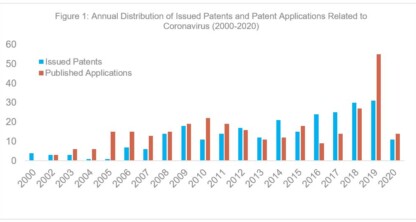
Aude S. Peden
Senior Counsel
Aude Peden, Ph.D., helps domestic and international life sciences innovators protect their valuable biotechnology, pharmaceutical, dietary supplement, and cosmetic intellectual property assets. Her past academic research experience gives her insight into the time, effort, challenges, creativity, and interdisciplinary thinking that gives rise to innovative technologies, allowing her to provide practical strategic advice for both defensive and offensive patent protection.
Aude’s practice focuses on patent counseling and procurement, freedom-to-operate analysis, counseling on infringement and invalidity issues, and due diligence as part of licensing and merger and acquisition negotiations. The companies she works with develop technology in a variety of fields, including genetically modified organisms, such as mammals and microorganisms; genetically modified cells, such as stem cells and chimeric antigen receptor (CAR) T cells for use in immunotherapy; recombinant molecules, such as small molecules, antibodies, and genes; vaccines, such as peptides, DNA, or mRNA vaccines; dietary supplements; diagnostic molecules; clean technology (recombinant microorganisms); and cosmetics. She is a member of the Chemical, Biotechnology & Pharmaceutical Practice.
Prior to joining Foley, Aude was an intern in the Office of the General Counsel and Office for Interactions with Industry at Partners HealthCare System (now known as Mass General Brigham). Prior to law school, Aude was an academic research scientist at the University of Utah, Salt Lake City/Howard Hughes Medical Institute, and the University of Texas, Knoxville. She also served as an intern in the Office of the General Counsel and Office for Interactions with Industry at Partners HealthCare System (now known as Mass General Brigham).
Representative Experience
- Drafted and prosecuted patent applications directed to immunotherapy, such as CAR T cells, including methods of manufacturing and use for treating cancers and other disorders
- Drafted and prosecuted patent applications directed to the genetic engineering of mammals for food or therapeutic uses, and microorganisms for biofuel production
- Drafted and prosecuted patent applications directed to recombinant molecules for diagnostics, therapeutics (including chimeric antigen receptors and antibodies and antibody derivatives), or basic research tools (e.g., nucleic acid amplification techniques)
- Assisted a startup company with IP portfolio management during a merger and acquisition transaction for an immunotherapy technology
- Assisted a multinational corporation with assessment of key opportunities and risks related to clean technology and related patents for a joint venture agreement
- For a diagnostic company, conducted invalidity and noninfringement assessments of competitor patents for an IPO valuation
- Assessed competing patents for invalidity and noninfringement for a biotechnology company’s litigation related to a gene therapy technology
- Conducted a freedom-to-operate analysis for a biotechnology company’s novel vaccine technology
Presentations and Publications
- Co-author, “The Rules,” IP Litigator, Volume 28 Number 6 (November/December 2022)
- Author, “Betaine acts on a ligand-gated ion channel in the nervous system of the nematode C. elegans,” Nature Neuroscience (2013)
- Co-author, “R-Ras regulates β1-integrin trafficking via effects on membrane ruffling and endocytosis,” BMC Cell Biology (2010)
- Co-author, “Nonlinear optical imaging of cellular processes in breast cancer,” Microscopy and Microanalysis (2008)
- Author, “The small GTPase R-Ras regulates organization of actin and drives membrane protrusions through the activity of PLCepsilon,” Journal of Cell Science (2006)
- Co-author, “Dissecting autocrine effects on pulsatile release of gonadotropin-releasing hormone in cultured rat hypothalamic tissue,” Experimental Biology and Medicine (2004)
- Co-author, “Leptin stimulates gonadotropin releasing hormone release from cultured intact hemihypothalami and enzymatically dispersed neurons,” Experimental Biology and Medicine (2001)
USPTO Publishes Drug Patent and Exclusivity Study Report
Exception to the Rule? Late Submission of Evidence as Supplemental Information Under 37 C.F.R. 42.123(b)
Exception to the Rule? Late Submission of Evidence as Supplemental Information Under 37 C.F.R. 42.123(b)
